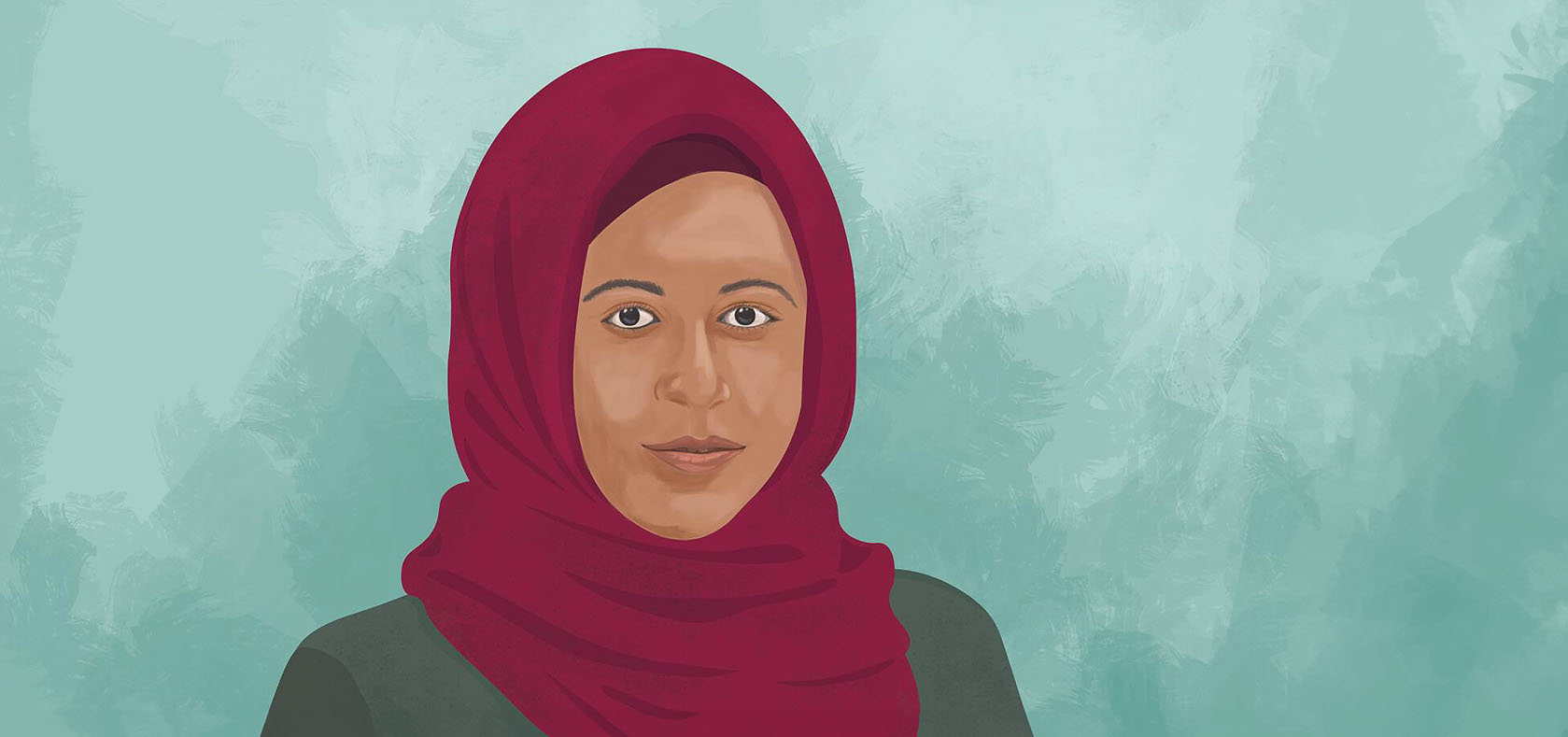In the words of Maryam: “We assist women at every level to get justice”
Date:

Maryam* is an activist supporting Muslim women facing issues in relation to Sri Lanka’s Muslim Marriage and Divorce Act. On the occasion of the International Day for Women Human Rights Defenders, she shared her story and spoke about some of the challenges faced by women Sri Lanka.

The trauma in my family inspired me to work for vulnerable women. My father left my mother and married another woman, providing us with no allowance or care. I grew up feeling the impact. My mother worked tirelessly in the paddy fields and then abroad to educate and care for us.
Despite being raised by our mother's hard work and warmth, we had to get our father’s permission to marry. Under Sri Lankan Muslim marriage law, a girl’s marriage is only valid if her father signs.
But my father said he would not take part in the wedding.
I was also affected when my husband ended our marriage, abandoning me and my child who has special needs. I dreamt of going to Mecca with my daughter, but I needed her father's permission to get her a passport. Yet, he had vanished.
So I went to the Quazi courts for a divorce. This is where the Muslim Marriage and Divorce Act (MMDA) is enforced. They questioned my reasons for the divorce and told me the village officer needed to confirm my husband’s absence. I suffered so much and wondered how other women who have been at home their whole lives would cope. This motivated me to do this work. I started in 2013, and since then, I have fought for the rights of women and girls.
Under Muslim marriage law, marriage can take place without a woman’s knowledge or consent. It can occur with the signature of the girl’s ‘Wali’ (male legal guardian). A family may force a girl to marry against her will.
Under the MMDA, there is no minimum marriage age. A man can legally marry a minor. I met a girl a few days ago who was married at 13. She had a child by 14.
People in rural areas do not register their marriages. A marriage is valid as long as the ‘Nikah’ (religious marriage ceremony) is performed. This makes it difficult to register children’s births. And if her husband abandons her, it becomes difficult for her to file a case.
“Under Muslim marriage law, marriage can take place without a woman’s knowledge or consent. It can occur with the signature of the girl’s ‘Wali’ ...”
— Maryam, activist, Sri Lanka
A man can also divorce without providing a reason or a maintenance allowance. If the woman opts for divorce, she receives no allowance. Some Quazi courts say that even if the husband tries to kill her, the wife must live with him. All these issues result from outdated laws.
Women who do not work outside the home have no options for survival if their husbands leave. Some cannot even eat. One client shared how her husband even threw away the rice. Another took the firewood.
When a woman leaves a marriage, society rarely speaks of the husband’s flaws. Instead, they see problems in her. Some families do not recognise a woman who returns to her parents, no matter what happened.
After I went to the Quazi court for my case, I started helping other women there. My peers and I discussed their concerns and offered support. Some don’t know how to file a case, register a marriage, or what to do if their husband leaves. They face traumas like domestic violence.
We began to face objections. Rumours were spread that we were trying to eliminate Islamic practices. When we met women, husbands scolded and threatened us. Men called at night to harass us, and even followed us.
Still, we kept working.
A lack of clear documentation had meant pending cases were not being referred to the Quazi court. Because we handled documentation properly, they started to support us. Documents, letters and affidavits that had been defective for so long were now correct. It took time, but today, society understands us. Now, people are directed to us. They volunteer support. If we don't go to court, we get a call asking why we didn't come. Quazi judges inform us that there are divorce cases and we should speak for those women.
We assist women at every level to get justice. For example, if they have to go to the Magistrate's Court, we arrange for them to meet lawyers beforehand. As there is no process to provide psychologically distressed women with counselling at the Quazi court, we direct them to the Divisional Secretariat, where there are psychosocial officers.
We serve women every day. We also teach them what is in the law and what is in the religion and hold regular discussions.
The Quazi courts, which are mostly accessed by poor women, should be monitored. Many women in our village don’t go to the court, saying that they will not get justice, but be degraded.
A change in the law is needed.
I want a society where women lead better lives.
In my village, 15-year-old girls have faced the hardships of 45-year-old women because of early marriage. It shouldn’t be like that. Quazi courts should become courts that can maintain justice.
That is my dream”.
*The name has been changed to protect the identity of the individual.
“In Sri Lanka, women human rights defenders have a strong legacy of shaping governance and peace, and advocating for the rights of the most marginalized. In February 2023, Sri Lanka adopted its first National Action Plan on Women, Peace and Security with support from the Government of Japan and UN Women. Through our work in advancing the women, peace and security agenda in Sri Lanka, UN Women calls for greater participation and representation of women in peace and security efforts”.